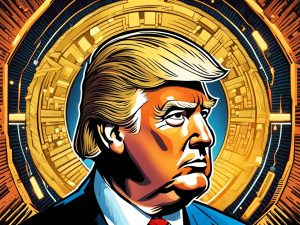Understanding the Impact of the UK General Election on Cryptocurrency Regulation
On July 4, the United Kingdom will hold a general election, a crucial event that could alter the nation’s economic policies and approach to cryptocurrency regulation. This election will not only determine the composition of the House of Commons but also shape the future government’s priorities and decisions regarding emerging technologies like cryptocurrency and blockchain.
Key Political Parties and Their Stances on Crypto
- Conservative Party: Led by Rishi Sunak, the Conservatives advocate for a pro-innovation approach towards cryptocurrency, aiming to establish the UK as a global hub for crypto technology while maintaining regulatory safeguards.
- Labour Party: Under Keir Starmer’s leadership, Labour takes a cautious stance on blockchain technology, emphasizing the importance of robust regulation to prevent misuse and protect consumers.
- Liberal Democrats: The Liberal Democrats support blockchain integration for transparency and efficiency but call for stringent regulations to combat illegal activities and safeguard investors.
The Impact of Political Events on the Financial Sector
Historically, political events like UK elections have significantly influenced the financial and tech sectors, leading to market volatility and regulatory uncertainties. For instance, the Brexit referendum in 2016 sparked turbulence in the UK market, affecting both domestic and international businesses.
The Current State of Crypto Regulation in the UK
The UK has ramped up regulatory efforts in response to high-profile bankruptcies, with the Financial Conduct Authority (FCA) overseeing crypto activities to ensure anti-money laundering measures and consumer protection.
- The FCA implemented new rules last year, requiring crypto firms to register with the regulator and have their marketing materials approved by an FCA-authorized entity.
- Exchanges must now provide clear warnings to customers about the associated risks of crypto investments to comply with regulations.
- Leading exchanges such as Coinbase, Revolut, and Binance have updated their applications to adhere to these regulations.
The UK’s Economic Challenges
The UK faces economic challenges such as high inflation, sluggish GDP growth, and unemployment, impacting the cryptocurrency market’s dynamics. High inflation rates often drive interest in cryptocurrencies as a hedge against currency devaluation, while regulatory measures can either support or stifle this trend.
UK Political Parties and Economic Management
With varying financial policies, political parties in the UK are assessed based on their ability to address economic challenges. The Conservatives are considered business-friendly, focusing on reducing taxes and stimulating investment, while Labour promises increased public spending and social welfare programs.
- Labour’s cautious approach to crypto assets could result in stricter regulations for consumer protection and financial stability, potentially affecting the sector’s growth.
- The Liberal Democrats advocate for balanced fiscal policies and sustainable economic growth, offering a middle ground approach.
The UK’s Crypto Adoption Index Ranking
The UK’s position in the Crypto Adoption Index has evolved over the years, reflecting the country’s growing acceptance of digital currencies. In 2023, the UK ranked 14th, surpassing some countries but lagging behind emerging economies in terms of cryptocurrency adoption.
Global Implications of UK’s Post-Election Policies
The UK’s post-election economic policies and cryptocurrency regulation will not only impact its domestic market but also influence global trends. Countries around the world are observing the UK’s regulatory approach as a potential model for their frameworks, potentially affecting global cryptocurrency adoption and market dynamics.
The Bottom Line
The upcoming UK general election on July 4 holds significant implications for cryptocurrency regulations and economic stability. The decisions made during this election could position the UK as a leader in crypto innovation or lead to a more cautious and regulated framework, each with its own consequences for the future.





 By
By
 By
By

 By
By
 By
By
 By
By